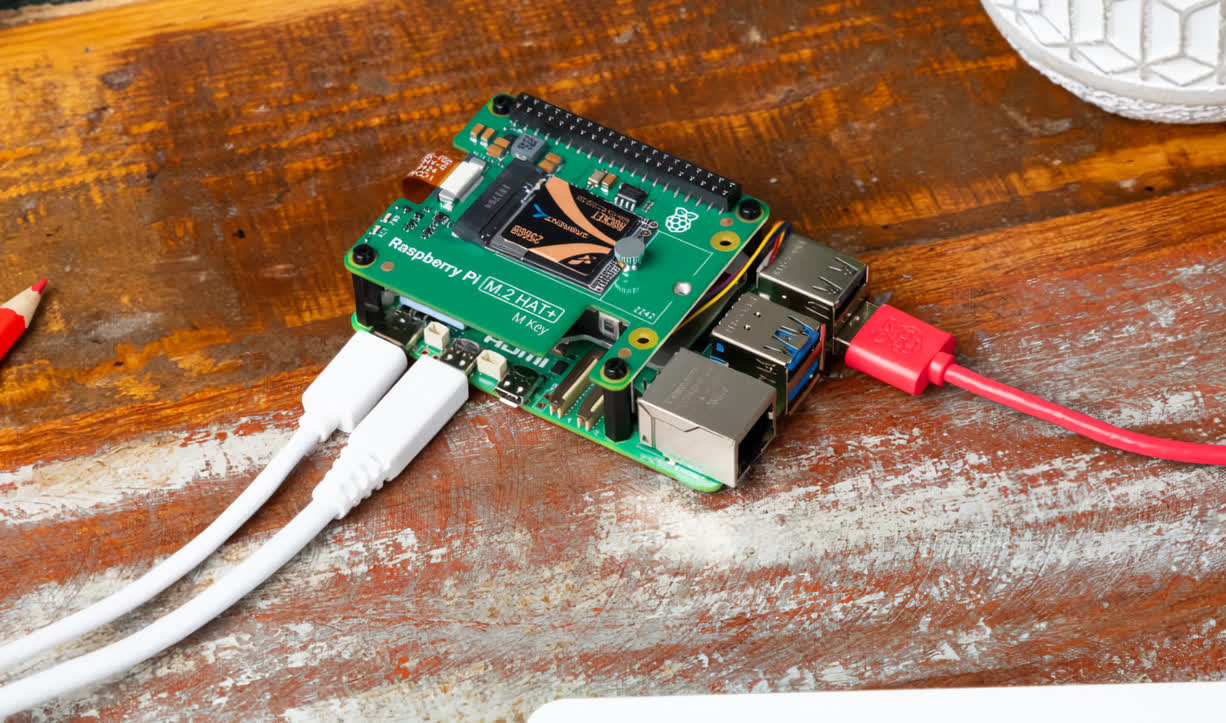Tech News
Linux updates improve Raspberry Pi performance and efficiency

The significance of Raspberry Pi: The Raspberry Pi project was initially created to promote the teaching of basic computer science in schools but has also gained popularity among enthusiasts. Raspberry Pi boards are now being utilized for a wide range of hobbyist projects, and developers are constantly working on enhancing the device’s compatibility with Linux-based operating systems.
Single-board computers developed by the Raspberry Pi Foundation are tailored for low-energy projects and cost-effective custom computing devices. However, there is always room for software enhancements. The Linux kernel, which is utilized by most Raspberry Pi-compatible operating systems including the official Raspberry Pi OS, recently received two patches aimed at improving functionality.
The first patch introduces initial Suspend-To-Idle (s2idle) support for the Arm-based BCM2835 SoC, which is the chip found in older Raspberry Pi models (Pi 1 to Pi 3). Developer Stefan Wahren focused on this specific SoC due to its simplicity compared to later models and the availability of ample documentation.
Linux S2idle is a suspended state defined by the ACPI standard, a power management technology used by operating systems to manage energy consumption on computing devices. ACPI comprises four suspension states (S0, S1, S3, S4), with S4 representing hibernation, where RAM contents are saved to disk before shutdown.
S2idle places a machine in a “freeze” mode, halting its operation. The Raspberry Pi-focused patch is said to offer a slight energy saving, equivalent to a third of a watt. Although this may seem minimal, it can have a cumulative effect considering the large number of Raspberry Pi units in use.
The second patch introduces a “very simple” implementation of NUMA (non-uniform memory access) emulation for arm64 platforms. NUMA is a well-known technology in the Linux sphere and aids in optimizing memory access by dividing physical RAM into segments. By utilizing a specific allocation policy like interleaving, the memory controller in the Raspberry Pi 5 (BCM2712) can leverage improved parallelism in the physical memory chip layout.
The outcome of NUMA emulation is a “significant” performance boost on Raspberry Pi 5 boards. Geekbench 6 results demonstrate a six percent increase in single-core performance and an 18 percent boost in multi-core performance. The patch developer also mentioned that the default Linux allocation policy does not involve interleaving, and additional steps are needed to unleash the performance enhancements in a Raspberry Pi 5 project.
-

 Destination8 months ago
Destination8 months agoSingapore Airlines CEO set to join board of Air India, BA News, BA
-

 Breaking News10 months ago
Breaking News10 months agoCroatia to reintroduce compulsory military draft as regional tensions soar
-

 Gadgets3 months ago
Gadgets3 months agoSupernatural Season 16 Revival News, Cast, Plot and Release Date
-

 Tech News12 months ago
Tech News12 months agoBangladeshi police agents accused of selling citizens’ personal information on Telegram
-

 Productivity11 months ago
Productivity11 months agoHow Your Contact Center Can Become A Customer Engagement Center
-

 Gadgets3 weeks ago
Gadgets3 weeks agoFallout Season 2 Potential Release Date, Cast, Plot and News
-

 Breaking News10 months ago
Breaking News10 months agoBangladesh crisis: Refaat Ahmed sworn in as Bangladesh’s new chief justice
-

 Toys12 months ago
Toys12 months ago15 of the Best Trike & Tricycles Mums Recommend























